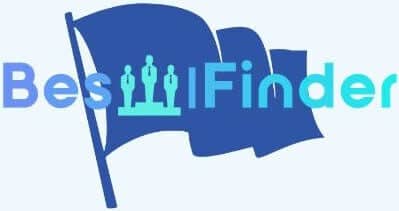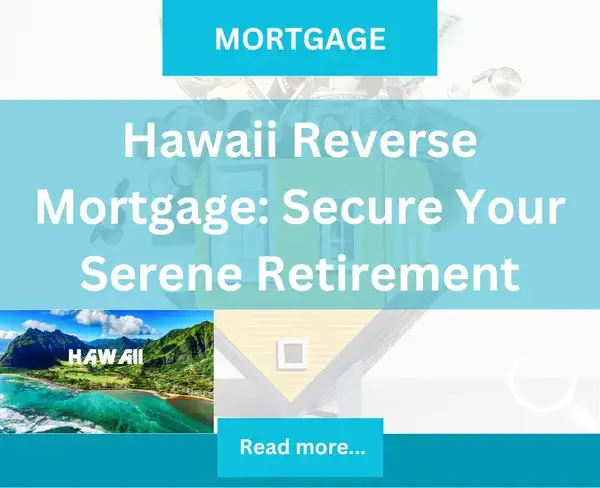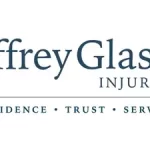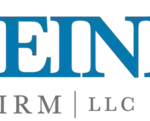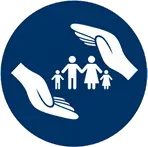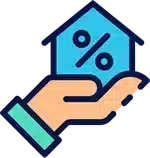Hawaii reverse mortgage is a financial product designed for homeowners aged 62 and older who own a primary residence in Hawaii. Like Hawaii reverse mortgage in other parts of the United States, it allows eligible homeowners to convert a portion of their home equity into tax-free funds without selling their property or making monthly mortgage payments. Hawaii reverse mortgages can provide valuable financial flexibility for older homeowners, enabling them to access their home equity to supplement their income, cover expenses, or enhance their retirement lifestyle. However, potential borrowers should carefully consider the terms and costs of reverse mortgages and seek advice from financial experts before deciding.
In this article, we will examine what the Hawaii reverse mortgage is, overview of the popularity of Hawaii reverse mortgage, eligibility for Hawaii reverse mortgage, types of reverse mortgages available in Hawaii, benefits of Hawaii reverse mortgage, considerations and risks of Hawaii reverse mortgage, how to apply for a Hawaii reverse mortgage, finding the right Hawaii reverse mortgage provider, and finally the top companies that provide the Hawaii reverse mortgage.
- What is a Reverse Mortgage?
- Overview of the Popularity of Hawaii Reverse Mortgage
- Eligibility for Hawaii Reverse Mortgage
- Types of Reverse Mortgages Available in Hawaii
- Benefits of Hawaii Reverse Mortgage
- Considerations and Risks of Hawaii Reverse Mortgage
- How to Apply for a Hawaii Reverse Mortgage?
- Finding the Right Hawaii Reverse Mortgage Provider
- Top Companies that Hawaii Reverse Mortgage
- Conclusion
- Hawaii Reverse Mortgage FAQ
What is a Reverse Mortgage?
Reverse mortgage is a loan allowing homeowners to access their home equity without selling their property. Instead of making monthly payments to a licensed reverse mortgage lender, the lender pays the landlord. This loan is designed for seniors who own their own home and have substantial equity in it and can provide a way to supplement retirement income or pay for unexpected expenses. It should be the best reverse mortgage for seniors. The current and reverse mortgages should be compared, and the best conclusion should be reached.
To qualify for a reverse mortgage, the homeowner must be 62, own the entire home or have substantial equity capital, and live in the home as their primary residence. The landlord must also seek advice from a HUD-approved institution before the loan is approved. Reputable reverse mortgage companies should be researched. Best-rated reverse mortgage companies help you in every way.
Government and Private Reverse Mortgages
There are two primary types of reverse mortgages available: government-insured reverse mortgages and private reverse mortgages. The most common government-backed reverse mortgage is the Home Equity Conversion Mortgage (HECM), insured by the Federal Housing Administration (FHA). Private companies offer private or proprietary reverse mortgages and may have different eligibility criteria and terms.
Reverse Mortgage Brokers and Providers
Navigating the reverse mortgage market can be complex, which is where reverse mortgage brokers come in handy. These professionals can help you connect with lenders and find the best reverse mortgage options for your specific situation. On the other hand, reverse mortgage providers are the lenders who offer reverse mortgage loans.
Exploring Reverse Mortgage Options
Seniors in Hawaii have various options when it comes to reverse mortgages. Some companies specialize in providing reverse mortgages for veterans, while others offer unique proprietary reverse mortgage loans. Exploring the options available is essential to find the one that best aligns with your financial strategies goals and needs.
Understanding Reverse Mortgage Rates and Costs
When evaluating reverse mortgage options, pay close attention to the interest rates and associated costs. A reputable reverse mortgage company will provide transparent information about the interest rates, closing costs, and other fees involved in the process. Comparing rates and prices from different lenders will help you find the most affordable option.
Cost and Fees Breakdown
Understanding the cost structure of a Hawaii reverse mortgage is crucial for any homeowner considering this financial options. These costs encompass a range of fees and insurance requirements that can significantly impact the total amount of equity that can be accessed through the loan. These costs are often rolled into the loan balance, which means they accumulate interest over the life of the loan, increasing the total amount owed.
| Fee Type | Typical Cost |
| Origination Fee | 0.5% – 2% of the loan amount |
| Appraisal Fee | $300 – $500 |
| Mortgage Insurance | 2% upfront, 0.5% annually |
When considering a Hawaii reverse mortgage, it’s essential to evaluate the associated costs and fees carefully. These expenses, including origination fees, appraisal costs, and mortgage insurance, can add up and affect the total equity available from your home. It’s advisable to consult with a financial reverse mortgage loan advisors or a reverse mortgage counselor to review these fees in detail and explore how they impact the overall economic strategy of your retirement planning.
Applying for a Reverse Mortgage
The application process for a reverse mortgage can typically be done in person, over the phone, or even online. Some seniors prefer the convenience of applying for a reverse mortgage online. Whichever method you choose, ensure you have all the necessary documents and information ready to facilitate a smooth reverse mortgage application process.
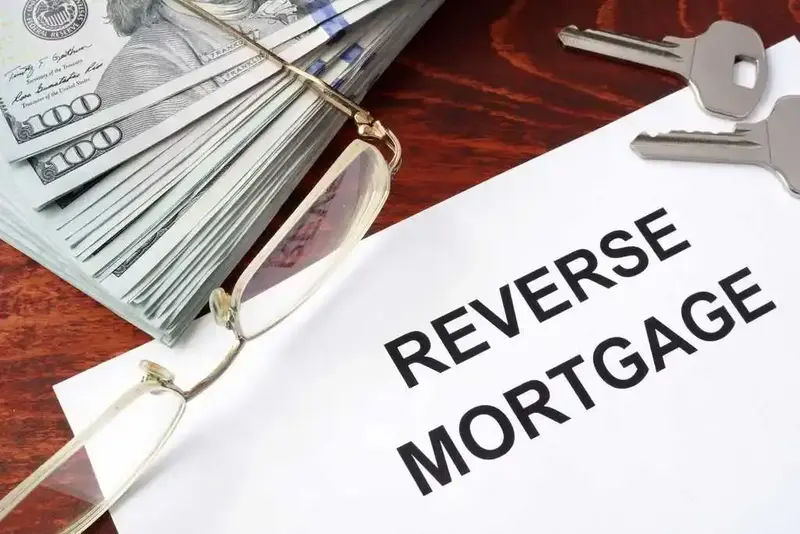
Overall, the reverse mortgage can be useful for seniors looking to supplement their retirement income or pay for unexpected expenses. However, you should research and consult a reverse mortgage specialist before deciding whether a reverse mortgage is right for you. It is important to find the best registered reverse mortgage lenders.
Overview of the Popularity of Hawaii Reverse Mortgage
Known for its stunning beaches, rich culture, and high cost of living, Hawaii has a unique housing market with a significant population of elderly homeowners. As retirees in Hawaii face rising living expenses and healthcare costs, Hawaii reverse mortgage have become a popular financial tool that helps seniors tap into their home equity to meet their financial needs and improve their retirement lifestyle.
Reverse mortgages in Hawaii were growing in popularity, and their usage was rising, mirroring the nationwide trend. Here is an overview of the factors contributing to the popularity of Hawaii reverse mortgage:
- Aging Population: Like many other states, Hawaii has an aging population. As more residents reach retirement age, the demand for financial products that can supplement their income and help them manage their expenses during retirement has increased. With their ability to tap into home equity without requiring monthly repayments, Hawaii reverse mortgages have become an appealing option for seniors seeking additional funds to support their retirement needs lifestyle.
- High Cost of Living: Hawaii is known for its high cost of living, which can be particularly challenging for retirees on fixed incomes. With increasing living expenses, some seniors turn to Hawaii reverse mortgages to access their home’s equity and ease financial burdens, such as medical expenses and property taxes.
- Home Equity Growth: Over the years leading up to 2021, Hawaii’s real estate market had seen steady growth in home values, resulting in increased home equity for many homeowners. As a result, more individuals qualified for Hawaii reverse mortgages due to their growing equity, making this financial product a viable option for homeowners looking to leverage their property value for additional income.
- Cultural Attitudes: In some cultures, homeownership holds significant importance, and the idea of selling one’s home or moving to a smaller residence may not be appealing. Hawaii reverse mortgages provide a way for elderly homeowners to remain in their homes while accessing the value of their property.
- Education and Awareness: Financial institutions, government agencies, and nonprofit organizations have been working to increase awareness and education about Hawaii reverse mortgages. As more people learn about the benefits and risks of this financial product, some have become more open to considering reverse mortgages as part of their retirement planning.
- Regulations and Protections: Federal and consumer protections have evolved to ensure that Hawaii reverse mortgage borrowers are better informed about these loans’ terms and potential risks. These improvements in regulation have contributed to the growing acceptance of reverse mortgages as a viable financial option.
Reverse mortgages in Hawaii were becoming increasingly popular among seniors due to an aging population, rising traditional home equity loan, high cost of living, and greater awareness of the product. However, it is crucial to remember that market conditions change over time, and the popularity of reverse mortgages may continue to evolve based on economic factors and shifts in the financial landscape. For the most up-to-date information on the popularity of Hawaii reverse mortgage, it is best to consult current market data and financial experts in the state. Unlike conventional mortgages, a traditional home equity line of credit, or a home equity line of credit (HELOCs), a reverse mortgage eliminates the need for monthly payments.
Eligibility for Hawaii Reverse Mortgage
As the allure of Hawaii’s beautiful landscapes and tranquil lifestyle attracts retirees seeking an idyllic retirement destination, understanding the eligibility criteria for a reverse mortgage becomes essential for homeowners in the Aloha State. A Hawaii reverse mortgage can offer a financial lifeline for seniors aged 62 and older, allowing them to tap into their home equity and secure additional funds for a comfortable retirement. However, before embarking on this financial journey, homeowners must familiarize themselves with the specific eligibility reverse mortgage requirements for obtaining a reverse mortgage in Hawaii.
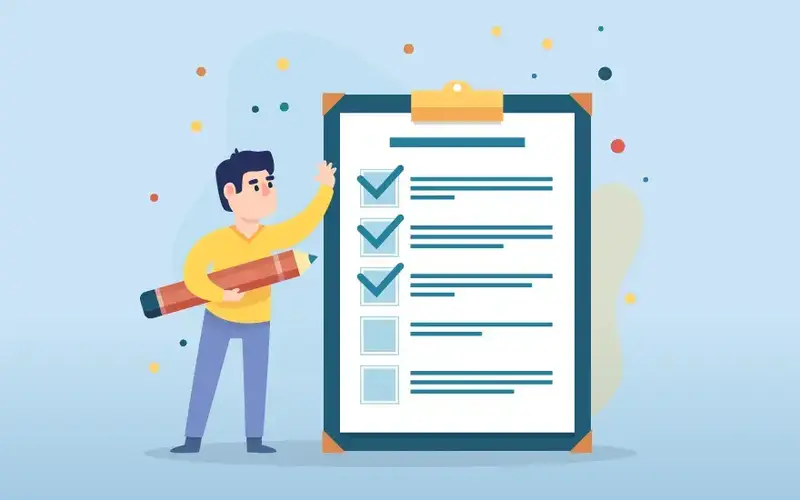
Here are the essential eligibility requirements for obtaining a Hawaii reverse mortgage:
- Age: At least one borrower on the title must be 62 or older. If there are co-borrowers, the youngest borrower’s age will determine eligibility and the reverse mortgage loan amount.
- Homeownership: The property must be the primary residence of the borrower(s). Vacation homes and investment properties are not well suited for Hawaii reverse mortgages.
- Property Type: Eligible property types typically include single-family homes, condominiums approved by the Federal Housing Administration (FHA), and some multi-unit properties with up to four units, as long as the mortgage borrower occupies one of the units.
- Equity: Homeowners should have sufficient home equity. The amount of home equity required will depend on the borrower’s age, the property’s value, and the current interest rates.
- Financial Assessment: Lenders will conduct an economic assessment to determine the borrower’s ability to cover ongoing property costs, such as property taxes, homeowner’s insurance, and home maintenance expenses. This assessment ensures the mortgage borrower can meet their obligations throughout the reverse mortgage loan period.
- Clear Title: The property must have a clear title, with no outstanding liens or judgments that could jeopardize the Hawaii reverse mortgage process.
- Counseling: Before obtaining a Hawaii reverse mortgage, borrowers must undergo counseling from a HUD-approved housing counseling agency. The reverse mortgage counseling session educates borrowers about reverse mortgage terms, costs, and implications.
It’s important to note that some specific situations may affect eligibility, and there might be additional requirements depending on the type of reverse mortgage chosen (e.g., Home Equity Conversion Mortgage or proprietary reverse mortgage). Additionally, eligibility criteria and regulations may change over time, so verifying the current requirements with a qualified reverse mortgage specialist or a HUD-approved counselor is essential.
Types of Reverse Mortgages Available in Hawaii
Regarding securing financial stability and peace of mind during retirement, reverse mortgages offer a compelling option for homeowners in Hawaii. As Hawaii’s senior population seeks ways to tap into their home equity and enhance their retirement years, it is crucial to understand the various types of reverse mortgages available. By delving into each option’s distinct features and benefits, homeowners can make well-informed choices that align with their unique financial goals and aspirations in this tropical paradise.
Home Equity Conversion Mortgages (HECMs)
HECMs are insured by the Federal Housing Administration (FHA) and are the most common type of reverse mortgage. They can be used by homeowners aged 62 and over with substantial home equity. The amount of money a homeowner can borrow through HECM depends on the home’s value, the age of the borrower, and the current interest rate.
The HECM reverse mortgage offers several benefits, including a government guarantee that the loan balance never exceeds the home’s value and protections for spouses who don’t borrow money. They also come with borrower protections such as mandatory advisory, limits on sourcing fees, and restrictions on how loan proceeds can be used. HECM line of credit and HECM reverse mortgage rates should be considered. HECM reverse mortgage lenders try to help with these issues.
Proprietary Reverse Mortgages
Proprietary reverse mortgages are offered by registered reverse mortgage lenders and are not insured by the FHA. Homeowners with higher house values can generally use them than are allowed in the HECM guidelines. Proprietary reverse mortgages can offer larger loan amounts than HECMs but also tend to have higher fees and interest rates.
Proprietary reverse mortgages offer more flexibility in loan amounts, but they may not have the same borrower protections as HECMs. Borrowers should thoroughly research the terms and fees associated with proprietary reverse mortgages before deciding which type of loan to use. The best proprietary reverse mortgage lenders and proprietary reverse mortgage companies are very important.
Overall, both HECMs and proprietary reverse mortgages can be useful tools for seniors looking to supplement their retirement income or pay for unexpected expenses. It is important to consider the costs and benefits of each option carefully, as well as seek advice from a financial professional or reverse mortgage professional.
Benefits of Hawaii Reverse Mortgage
Hawaii reverse mortgages offer a compelling financial solution for eligible homeowners in Hawaii, providing a range of benefits that can significantly enhance their retirement years. As boasts a high cost of living and a significant senior population, reverse mortgages have gained popularity to tap into home equity and secure additional funds for a comfortable and stress-free retirement. This financial instrument allows Hawaii’s residents aged 62 or older to access tax-free cash while retaining ownership of their homes, offering financial flexibility and the opportunity to age in place.
Some of the key Hawaii reverse mortgages benefits include:
- Access to Home Equity: A reverse mortgage allows homeowners to access the equity in their home without selling it. This can be particularly beneficial for seniors with limited income or savings but substantial equity capital in their homes.
- No Monthly Payments: Reverse mortgages do not require monthly payments. Instead, the landlord receives payment from the lender. This can help relieve financial stress and provide a source of income for seniors.
- Flexibility: A reverse mortgage offers flexibility in how the borrower can receive the loan proceeds. For example, they can receive a lump-sum payment, monthly payments, or a line of credit.
- Credit Protection: Reverse mortgages are insured by the Federal Housing Administration (FHA) and come with borrower protections such as mandatory advisory, limits on creation fees, and restrictions on how loan proceeds can be used. This can give borrowers peace of mind knowing they are protected from predatory lending practices.
- Estate Planning: A reverse mortgage can also be used as part of an estate planning strategy. Seniors with access to capital in their homes through a reverse mortgage can use the funds to pay off debts, finance long-term care or provide an inheritance for their heirs.
Overall, a reverse mortgage can be a useful tool for Hawaii residents to supplement their retirement income or pay for unexpected expenses. However, it is important to carefully consider the costs and benefits of this type of loan and seek advice from a financial professional or reverse mortgage professional before making a decision.
Considerations and Risks of Hawaii Reverse Mortgage
Before embarking on a Hawaii reverse mortgage journey in Hawaii, homeowners must carefully assess this financial option’s considerations and potential risks. While reverse mortgages can offer significant benefits, Hawaii’s unique economic landscape and high cost of living call for a cautious evaluation of the implications. As retirees seek to enjoy their golden years in this tropical paradise, it is crucial to be aware of the potential pitfalls and challenges that may arise with a reverse mortgage.

While there are benefits to a Hawaii reverse mortgage, there are also considerations and risks that Hawaii residents should be aware of before deciding to take this type of loan. Some of these are those:
- Loan Costs: Reverse mortgages can come with high upfront costs, including creation fees, closing costs, and mortgage insurance premiums. These costs can be substantial and reduce the home’s equity over time.
- Interest Rates: Reverse mortgages typically have higher interest rates than traditional mortgages, which can increase over time and reduce home equity.
- Reducing Home Equity: Because a Hawaii reverse mortgage allows homeowners to access the equity in their home, the loan balance increases over time, which can reduce the equity available to the homeowner or his heirs in the future.
- Impact on Government Benefits: Reverse mortgage proceeds can affect eligibility for certain government benefits such as Medicaid and Supplemental Security Income (SSI).
- Repayment Obligations: While there are no required monthly payments with a reverse mortgage, they must be repaid when the borrower dies, sells the home, or no longer uses the home as their original residence. If the debt balance exceeds the house’s value on that date, the debtor or heirs may be liable to pay the difference.
- Limited Options: If the borrower wants to move or sell the home, they may face limited options or additional costs, such as paying off the reverse mortgage loan balance.
- Home Care: Homeowners must continue protecting their property and pay property taxes and insurance premiums. Failure to do so could trigger a lien.
For Hawaii residents considering a Hawaii reverse mortgage, it is important to carefully weigh the costs and benefits and seek advice from a financial professional or reverse mortgage professional before making a decision. It is also very important to understand the terms and requirements of the loan and the possible risks.
How to Apply for a Hawaii Reverse Mortgage?
Applying for a reverse mortgage in Hawaii can be an empowering financial decision for seniors seeking to unlock the potential of their home equity and enhance their retirement years. As Hawaii’s stunning landscapes and inviting lifestyle attract retirees, understanding the step-by-step process to obtain a Hawaii reverse mortgage becomes crucial. This financial instrument allows homeowners aged 62 or older to access tax-free funds while retaining ownership of their homes, providing a flexible solution to supplement retirement income and cover essential expenses.
Applying for a reverse mortgage in Hawaii follows a similar process to applying for a reverse mortgage in other states. Here are the general steps to apply for a Hawaii reverse mortgage:
- Research and Gather Information: Research different Hawaii reverse mortgage lenders in Hawaii and compare their terms, interest rates, and fees. Gather all the necessary information about your home, including its value, current mortgage balance (if applicable), and any outstanding liens or judgments.
- Eligibility Check: Ensure you meet the eligibility criteria for a reverse mortgage in Hawaii, such as being at least 62 years old, owning the home as your primary residence, and having sufficient home equity.
- Counseling: Before applying for a Hawaii reverse mortgage, you must attend a counseling session with a HUD-approved housing counselor. The counselor will explain the reverse mortgage program, its costs, benefits, and alternatives, ensuring you fully understand the implications.
- Application Submission: Choose a lender and submit your reverse mortgage application. The lender will review your application and verify the information provided. You may need to provide additional documentation, such as proof of income and identification.
- Property Appraisal: The lender will order an appraisal of your property to determine its current market value. The review is crucial in calculating the loan amount you may be eligible for. If you’re considering getting a reverse mortgage loan and want to know how much you could qualify for, look at our reverse mortgage calculator.
- Financial Assessment: The lender will conduct an economic assessment to ensure you can pay property taxes, insurance, and other ongoing property costs.
- Loan Processing: Once all necessary information and documents are collected, the lender will process your reverse mortgage application. This can take weeks to complete.
- Underwriting: The lender’s underwriting team will review your application, the appraisal report, and the financial assessment results to make a final decision on your loan approval.
- Closing: If your application is approved, you will receive a loan estimate and closing disclosure with the terms and costs of the Hawaii reverse mortgage. A closing date will be set for signing the loan documents.
- Disbursement of Funds: After the loan closing, you can choose how to receive the loan proceeds – whether as a lump sum, monthly payments, a line of credit, or a combination of these options.
It’s essential to take your time during the application process, review all the documents carefully, and seek advice from a qualified reverse mortgage specialist or financial reverse mortgage loan advisor to make an informed decision that aligns with your financial goals and needs.
Finding the Right Hawaii Reverse Mortgage Provider
Choosing the right reverse mortgage provider in Hawaii involves several key considerations to ensure you get the best service and terms. Here’s a guide to help you find the right Hawaii reverse mortgage provider:
- Understand Reverse Mortgages: Before you choose a provider, make sure you fully understand what a reverse mortgage is, how it works, and the implications for your financial situation. A reverse mortgage allows homeowners aged 62 and older to convert part of the equity in their home into cash, which can be a crucial resource in retirement.
- Research Providers: Look for companies specializing in reverse mortgages and having a strong presence in Hawaii. Local expertise can be beneficial, especially when dealing with unique state-specific regulations and real estate markets.
- Check Credentials and Reviews: Verify that the provider is licensed to offer reverse mortgages in Hawaii. Check their reputation through reviews on platforms like the Better Business Bureau (BBB), Yelp, and other relevant financial review sites.
- Consult with a HUD-Approved Counselor: The U.S. Department of Housing and Urban Development (HUD) requires all potential borrowers of reverse mortgages to meet with a HUD-approved counselor. This counselor can help you understand the risks and benefits and provide an unbiased perspective on your decision.
- Personal Interaction: Consider how each provider communicates with you once you narrow your list. Are they prompt and clear with their communication? Do they genuinely care about your situation and needs? A good provider should make you feel comfortable and confident in your decision.
- Special Features and Support: Some providers offer features or support that are particularly advantageous, such as protection against displacement or options for receiving the loan proceeds. Evaluate these features as they can impact your long-term financial planning.
By taking these steps, you can better ensure that you select a reverse mortgage provider in Hawaii that best meets your needs and provides reliable, respectful service.
Top Companies that Hawaii Reverse Mortgage
When exploring reverse mortgage options in Hawaii, homeowners may wonder which companies are the most reputable and reliable in providing these financial products. With the allure of Hawaii’s idyllic surroundings and the need for a secure retirement plan, choosing the right reverse mortgage lender becomes paramount. Fortunately, Hawaii is home to several prominent companies offering Hawaii reverse mortgage solutions tailored to meet the needs of its senior population.
Here is a list of the best Hawaii reverse mortgage companies:
- Reverse Mortgage Funding
- Premier Reverse Mortgage
- Reverse Mortgage Solutions Inc.
- American Advisors Group (AAG)
If you are looking for an answer to a Hawaii reverse mortgage companies near me question, let’s review the best Hawaii reverse mortgage companies in order:
Reverse Mortgage Funding
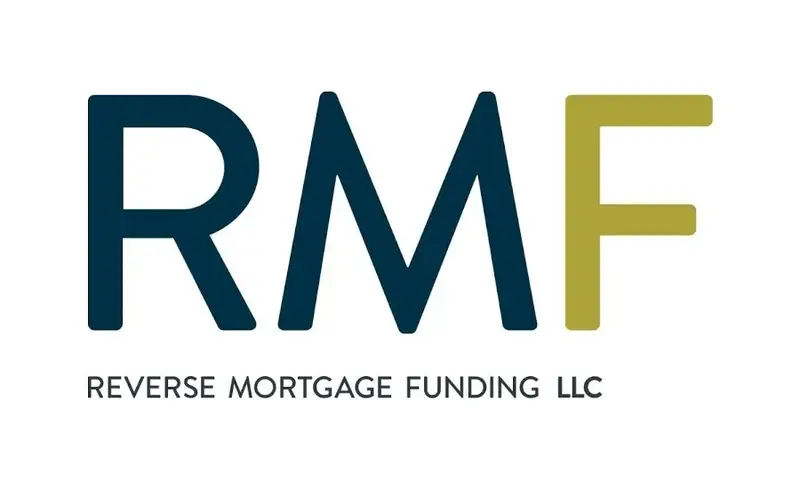
Reverse Mortgage Funding is a financial company that provides reverse mortgages to eligible homeowners. A reverse mortgage loan is available to homeowners aged 62 and older, allowing them to convert part of their home’s equity into cash. The main difference between a traditional mortgage and a reverse mortgage is that with a reverse mortgage, the homeowner receives payments from the lender instead of making monthly payments.
Here’s how a reverse mortgage generally works:
- Eligibility: To qualify for a reverse mortgage, the homeowner must be at least 62 years old, own their home outright or have a significant amount of equity, and live in the home as their primary residence.
- Loan Amount: The reverse mortgage loan amount is based on factors such as the homeowner’s age, the appraised value of the home, and current interest rates. Generally, the older the homeowner and the higher the home value, the more money they can receive.
- Payment Options: Borrowers can receive the loan proceeds in various ways, such as a lump sum, monthly payments, a line of credit, or a combination of these options.
- Repayment: Unlike a traditional mortgage, the loan does not need to be repaid as long as the homeowner continues to live in the home. The loan becomes due when the homeowner sells the home, moves out permanently, or dies. At that time, the loan is usually repaid through the home sale. If the home value has increased, the homeowner’s heirs may receive any remaining equity after repaying the loan.
As a financial institution, Reverse Mortgage Funding would offer reverse mortgage products and services to eligible homeowners. It’s important for potential borrowers to thoroughly understand the terms, costs, and implications of a reverse mortgage before agreeing with any lender. As with any significant financial decision, seeking advice from a financial reverse mortgage advisor or counselor is highly recommended to ensure that a reverse mortgage is the right option for their situation.
Hawaii Reverse Mortgage with Reverse Mortgage Funding
Reverse Mortgage Funding provides various Hawaii reverse mortgage products and services to seniors aged 62 and older who own their homes outright or have significant home equity. As previously explained, a Hawaii reverse mortgage allows homeowners aged 62 and older to convert a portion of their home equity into cash without selling their home. RMF provides various options for receiving the loan proceeds, such as a lump sum, monthly payments, a line of credit, or a combination of these choices.
It’s important to note that specific terms, eligibility criteria, and available products may vary among different Hawaii reverse mortgage lenders. As with any significant financial decision, individuals interested in a Hawaii reverse mortgage should thoroughly research their options, understand the terms and conditions, and seek advice from a financial advisor or counselor to ensure the product suits their needs and circumstances.
To learn more about Reverse Mortgage Funding, you can review this article: Reverse Mortgage Funding
From this link you can visit Reverse Mortgage Funding‘s website: https://www.linkedin.com/company/reverse-mortgage-funding-llc/
Reverse Mortgage Funding Phone Number: 888-494-0882
Premier Reverse Mortgage
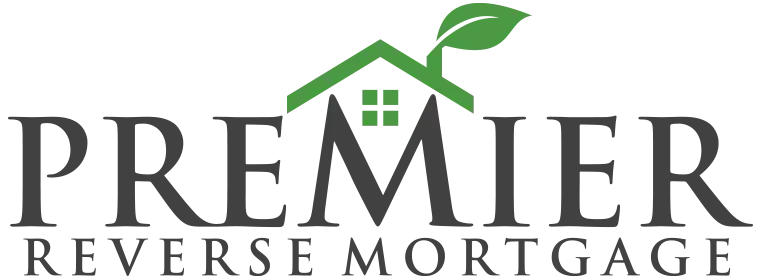
Premier Reverse Mortgage is a company that offers reverse mortgage services to eligible homeowners in the United States. A reverse mortgage is a financial product that allows seniors over 62 to access a portion of their home equity without selling their property or paying a monthly mortgage.
Through a reverse mortgage, homeowners can receive loan proceeds in a lump sum, monthly payments, a line of credit, or a combination of these options. The loan is repaid when the homeowner permanently leaves the home, either by selling it, moving out, or passing away. At that time, the loan balance, along with accrued interest and fees, must be repaid, typically through the sale of the property. Reverse mortgages can benefit seniors who want to supplement their retirement income, cover medical expenses, or have more financial flexibility. However, it’s essential to thoroughly understand the terms, costs, and obligations of reverse mortgages before deciding.
Hawaii Reverse Mortgage with Premier Reverse Mortgage
Premier Reverse Mortgage is a company that offers reverse mortgage services, including in Hawaii. A reverse mortgage allows eligible homeowners, typically aged 62 or older, to convert a portion of their home’s equity into cash without selling the property or making monthly mortgage payments.
It’s important to remember that reverse mortgages are financial products with specific requirements and potential implications. Before proceeding with any reverse mortgage, it’s essential to thoroughly understand the terms, costs, and responsibilities associated with the loan. Additionally, consider discussing your plans with a financial reverse mortgage loan advisor or a HUD-approved reverse mortgage counselor to ensure that a reverse mortgage aligns with your overall financial strategy.
To learn more about Premier Reverse Mortgage, you can review this article: Premier Reverse Mortgage
From this link you can visit Premier Reverse Mortgage‘s website: https://www.premierreverse.com/
Premier Reverse Mortgage Phone Number: (800) 996-5361
Reverse Mortgage Solutions Inc.
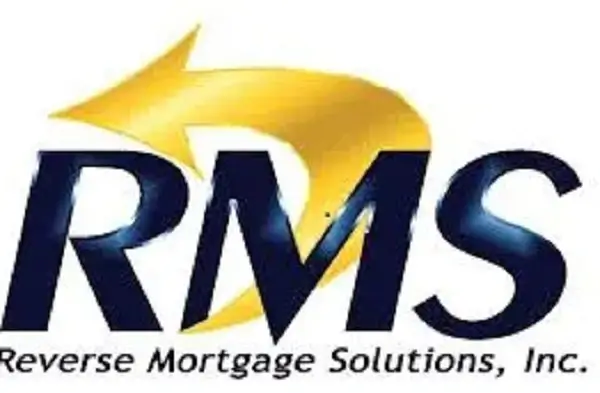
Reverse Mortgage Solutions Inc. (RMS) was a company that specialized in providing reverse mortgages to senior homeowners in the United States. A reverse mortgage is a financial product that allows homeowners aged 62 and older to convert a portion of their home equity into cash without selling the property or making monthly mortgage payments.
RMS, like other reverse mortgage lenders, would assess the value of the borrower’s home, their age, and other factors to determine the amount of money they could borrow through a reverse mortgage. The loan proceeds could be received in various forms, such as a lump sum, monthly payments, or a line of credit.
Hawaii Reverse Mortgage with Reverse Mortgage Solutions Inc.
Hawaii reverse mortgages have emerged as a popular financial tool for senior homeowners looking to supplement their retirement income without selling their homes. Among the prominent players in the industry, Reverse Mortgage Solutions Inc. (RMS) stands out as a reputable and experienced lender. A Hawaii reverse mortgage is a loan available to homeowners aged 62 and older, allowing them to convert a portion of their home equity into tax-free cash without the need to sell or give up ownership of their deed. Reverse mortgages do not require monthly repayments. Instead, the loan balance is repaid when the homeowner moves out of the house, sells the property, or passes away.
To qualify for a Hawaii reverse mortgage from Reverse Mortgage Solutions Inc., homeowners must meet criteria such as being 62 years old, owning a qualifying home, and using the property as their primary residence. Additionally, borrowers must undergo a financial assessment to ensure they can meet the ongoing obligations of the loan, such as property taxes and homeowner’s insurance.
To learn more about Reverse Mortgage Solutions Inc., you can review this article: Reverse Mortgage Solutions Inc.
From this link you can visit Reverse Mortgage Solutions Inc.‘s website: https://rmsnav.com/
Reverse Mortgage Solutions Inc. Phone Number: (281) 404-7800
American Advisors Group
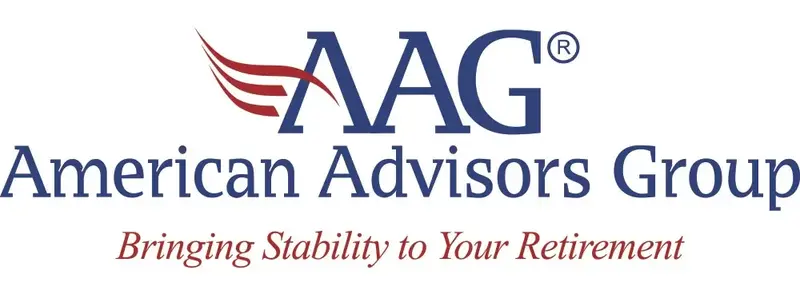
American Advisors Group is a reverse mortgage lender that offers Home Equity Conversion Mortgages (HECMs) and other reverse mortgage products to eligible senior homeowners. The company is headquartered in Orange, California and is licensed to do business in all 50 states, including Hawaii.
AAG American Advisors Group has been in business since 2004 and is one of the largest reverse mortgage lenders in the United States. The company is known for its famous spokesperson, Tom Selleck, who has appeared in television commercials promoting AAG’s reverse mortgage loans.
AAG aims to help seniors use the equity in their homes to improve their financial security and quality of life. The company offers a range of resources and educational materials to help seniors understand the benefits and potential disadvantages of a reverse mortgage and make informed decisions about whether a reverse mortgage is right for their individual needs and goals.
Hawaii Reverse Mortgage with American Advisors Group (AAG)
American Advisors Group (AAG) offers Hawaii reverse mortgages to eligible senior homeowners in Hawaii, including Home Equity Conversion Mortgages (HECMs) and other reverse mortgage loans. With a reverse mortgage, eligible seniors can access home equity to improve their financial security and quality of life.
Some of the key features of AAG’s reverse mortgage loans in Hawaii include the following:
- No Monthly Mortgage Payments: Reverse mortgage loans from AAG do not require borrowers to make monthly mortgage payments. Instead, the loan is repaid when the borrower moves out of the house, sells the house, or dies.
- Non-repayable Loan: AAG’s reverse mortgage loans are non-performing loans, meaning that the borrower or his property will never owe more than the home’s value when the loan is repaid.
- Flexible Payment Options: AAG offers several options for reverse mortgage loans, including wholesale payments, monthly payments or a line of credit.
- Educational Resources: AAG provides various educational resources, including articles, videos, and webinars, to help seniors and their families learn more about Hawaii reverse mortgage and how it works.
- Counselling and Support: AAG offers counselling and support services to help seniors understand the benefits and potential disadvantages of Hawaii reverse mortgages and determine whether a Hawaii reverse mortgage is right for their needs and goals.
Overall, the AAG aims to help Hawaiian seniors use their home equity capital to achieve greater financial security and independence and confidently live their retirement years.
To learn more about American Advisors Group (AAG), you can review this article: American Advisors Group
From this link you can visit American Advisors Group (AAG)‘s website: https://www.aag.com/
American Advisors Group (AAG) Phone Number: (800) 224-9121
Conclusion
A Hawaii reverse mortgage can be a powerful financial tool for seniors seeking additional funds to support their retirement. By partnering with the best reverse mortgage company, seniors can gain access to their home equity while maintaining property ownership. Remember to explore various options, compare rates, and reverse mortgages work with reputable lenders to make the most informed decision that aligns with your financial goals and needs. Always seek financial advice from a qualified professional before proceeding with a reverse mortgage.
Hawaii Reverse Mortgage FAQ
When considering a Hawaii reverse mortgage, gathering accurate and comprehensive information is important to make an informed decision. A reverse mortgage allows homeowners aged 62 or older to convert part of the equity in their home into cash, which can provide financial relief and support during retirement. Instead, the loan balance grows over time, and the loan is typically repaid when the borrower moves out of the home or passes away. In this FAQ, we’ll explore common questions and key details about reverse mortgages in Hawaii, helping you understand the eligibility requirements, benefits, risks, and how they specifically apply to properties in Hawaii.
What are the upfront costs of a reverse mortgage?
The upfront costs of a reverse mortgage typically include origination fees, mortgage insurance premiums (MIP), appraisal fees, closing costs, and counseling fees.
Can I get a reverse mortgage on a mobile home?
Yes, you can get a reverse mortgage on a mobile home, but certain conditions must be met. The mobile home must meet specific eligibility criteria, including being on a permanent foundation, meeting HUD guidelines, and being classified as real property. Working with a lender experienced in mobile home reverse mortgages is essential to navigate the process successfully.
How to sell a home with a reverse mortgage?
To sell a home with a reverse mortgage, follow these general steps:
1. Notify the Lender: Inform the reverse mortgage lender about your intention to sell the home. They will provide essential details about the outstanding loan balance and any additional requirements.
2. List the Home for Sale: Work with a real estate agent to list the property on the market and find potential buyers.
3. Determine the Home’s Value: Get a professional appraisal to determine the home’s current market value.
4. Pay off the Reverse Mortgage: Use the proceeds from the home sale to pay off the outstanding reverse mortgage balance, including any accrued interest and fees
5. Complete the Sale: Once the reverse mortgage is fully paid, complete the sale transaction with the buyer, and transfer ownership of the property.
6. Handle any Surplus: If the home sells for more than the reverse mortgage balance, the remaining proceeds belong to the homeowner or their heirs
Remember that specific procedures and requirements can vary based on the type of reverse mortgage and local regulations. It’s essential to consult with the reverse mortgage lender and a real estate professional to ensure a smooth and successful home sale process.
How much equity do I need for a reverse mortgage?
There is no specific minimum equity requirement for a reverse mortgage, but generally, the more equity you have in your home, the more you can potentially borrow. Eligibility depends on your age, home value, and current interest rates.
Can you get a reverse mortgage on a modular home?
You can get a reverse mortgage on a modular home, but certain conditions must be met. For a modular home to be eligible for a reverse mortgage, it needs to meet specific requirements, such as:
Permanently Affixed: The modular home must be permanently affixed to a foundation or a site and cannot be a mobile home that is easily movable.
HUD Guidelines: The modular home must meet the guidelines set by the Department of Housing and Urban Development (HUD) for reverse mortgages.
Property Type: The home must be classified as real property, not personal property, and should be treated similarly to a traditional single-family home.
Appraisal: A professional review may be required to determine the home’s value and its eligibility for a reverse mortgage.
If the modular home meets these criteria, it may be eligible for a reverse mortgage, such as a Home Equity Conversion Mortgage (HECM) or a proprietary reverse mortgage offered by private lenders. However, working with a reverse mortgage specialist or lender experienced in handling modular home reverse mortgages is essential to navigate the process successfully.
